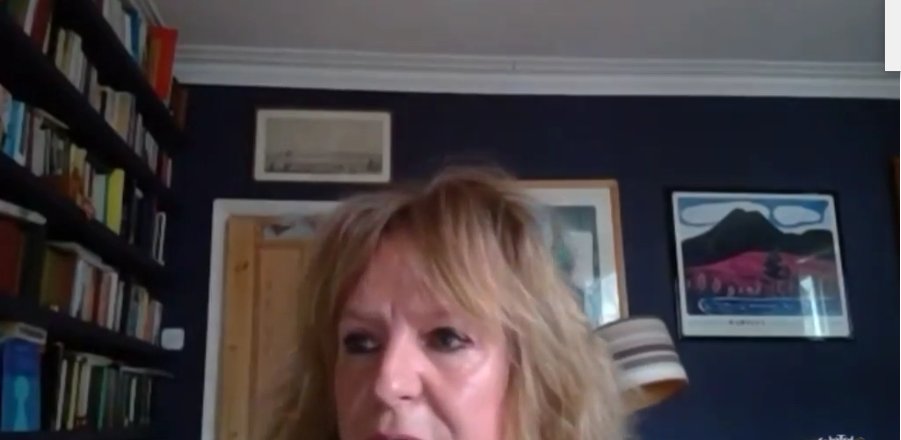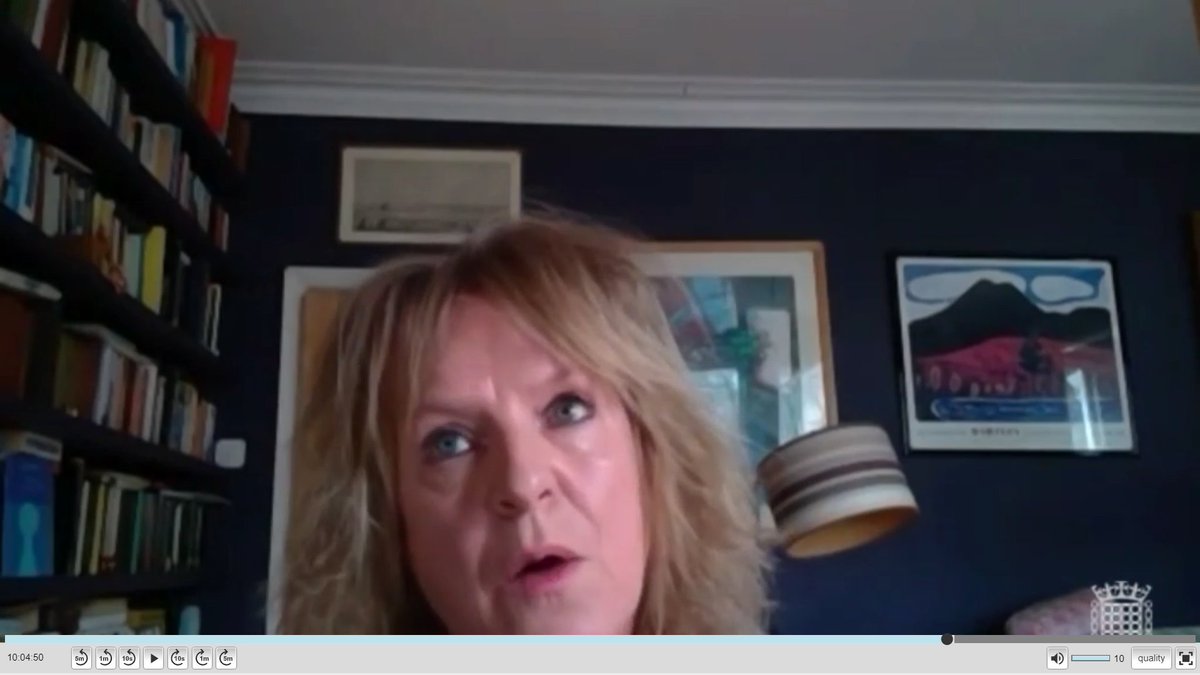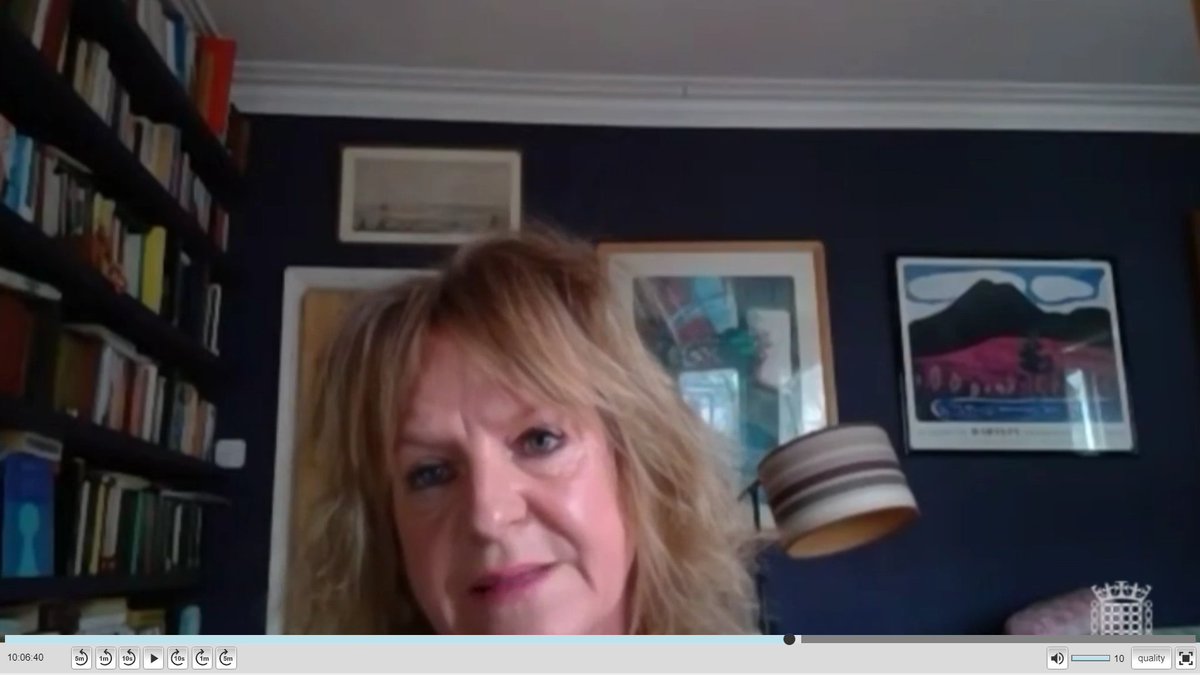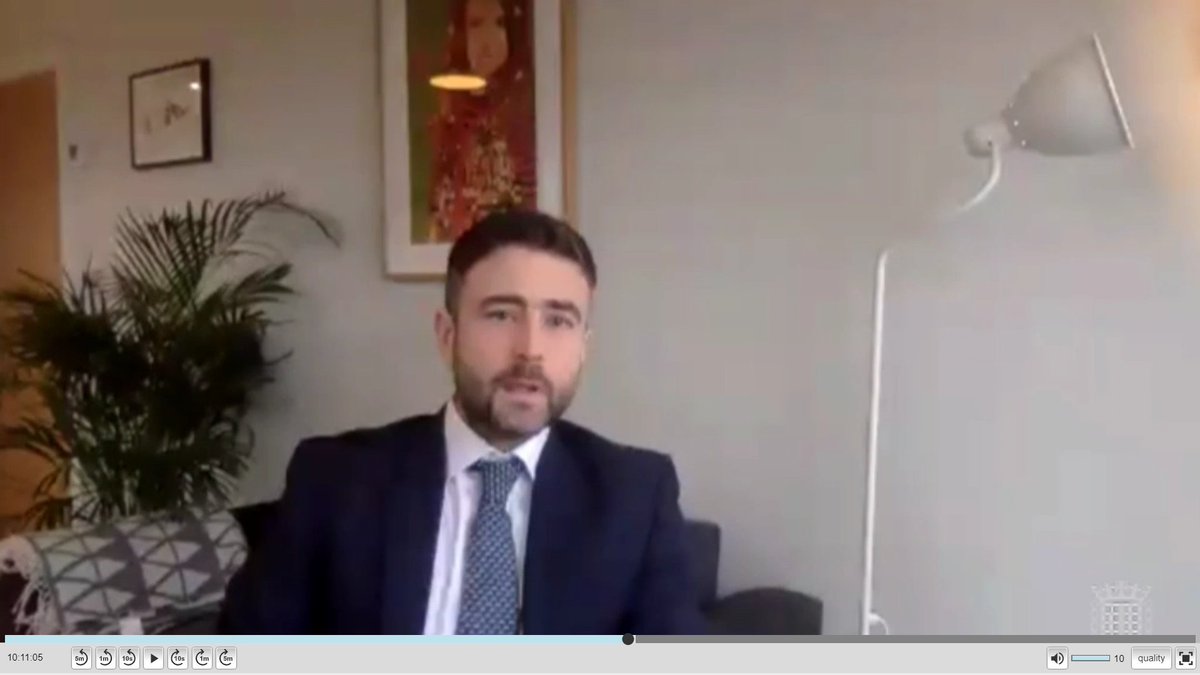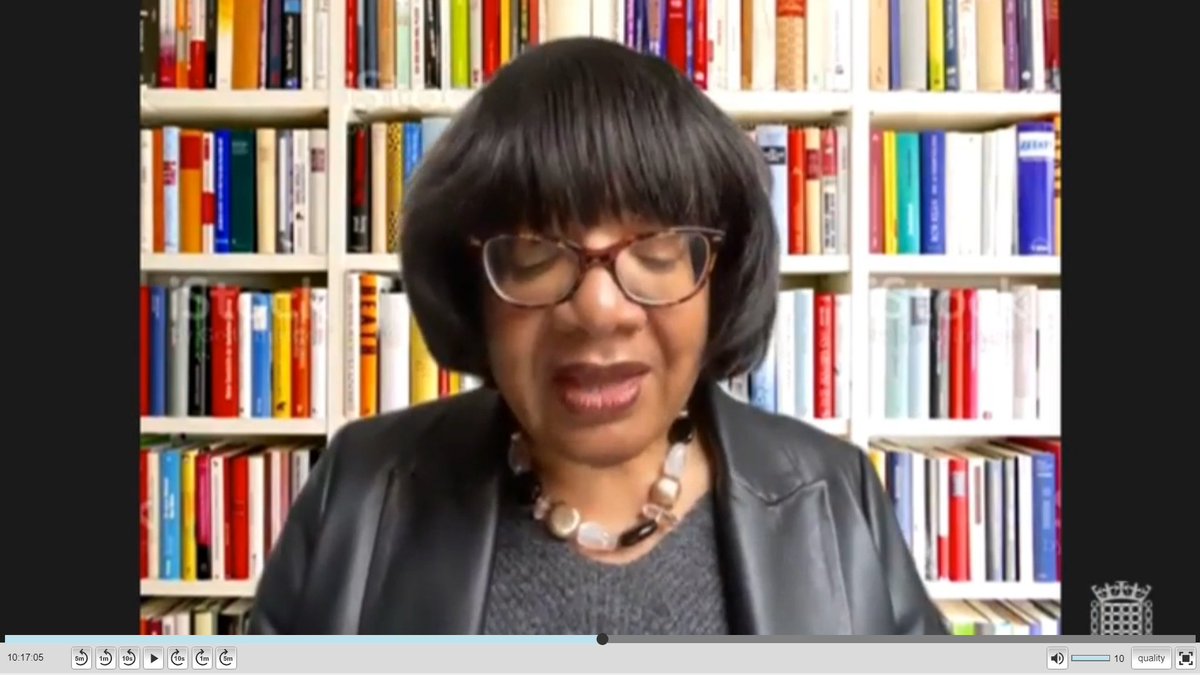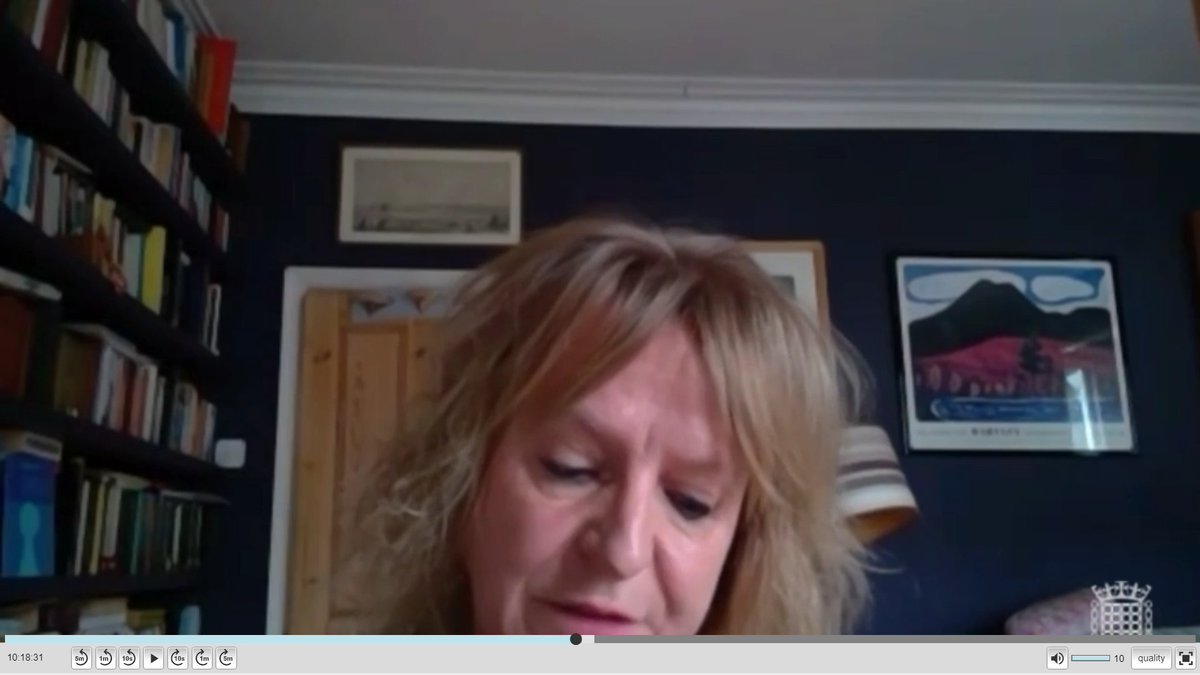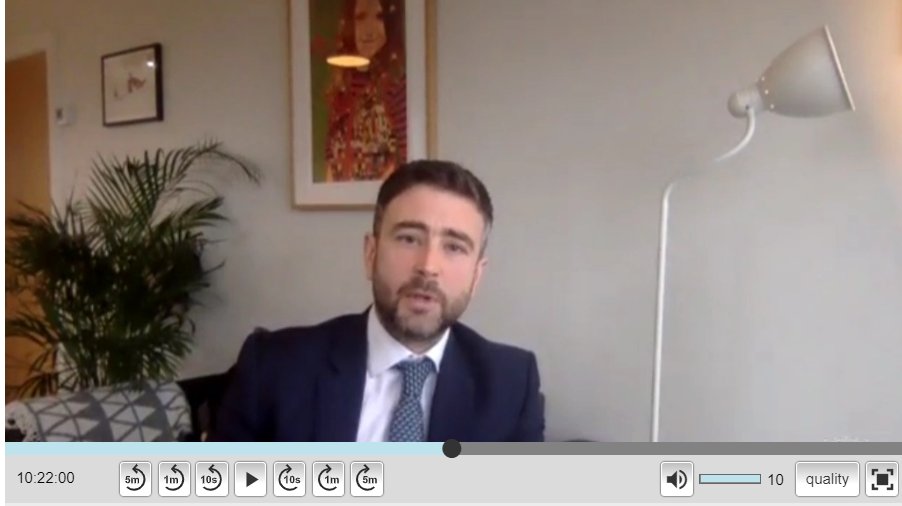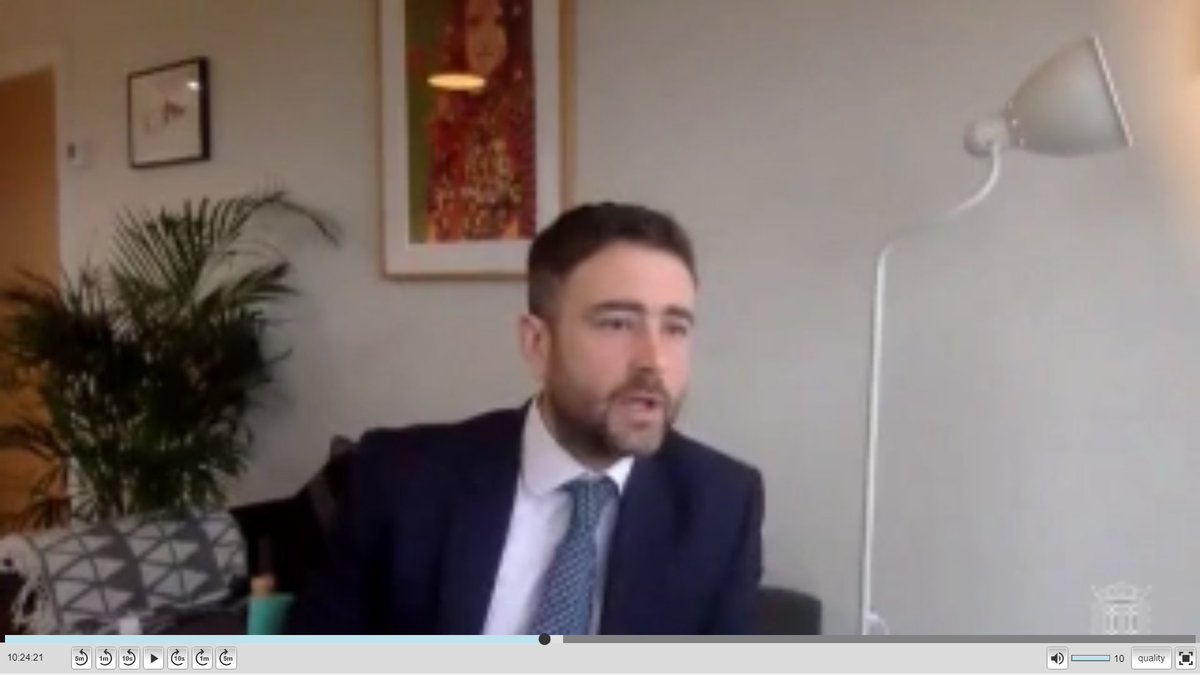LIVE: Watch @DebatINQUEST and the Police Action Lawyers Group evidence to the Home Affairs Select Committee @CommonsHomeAffs from 10am, on bereaved people's experiences of the police complaints system and the role of the IOPC
Live tweets to follow
https://www.parliamentlive.tv/Event/Index/b9d836b3-da4e-44b6-ab4e-6e4deca23d97
Live tweets to follow
https://www.parliamentlive.tv/Event/Index/b9d836b3-da4e-44b6-ab4e-6e4deca23d97
More information about the inquiry here: https://committees.parliament.uk/committee/83/home-affairs-committee/news/138714/evidence-session-on-the-police-complaints-system-and-the-role-of-the-iopc/
@DebatINQUEST opens the session giving an overview of the experiences of the police conduct and complaints system from the perspective of INQUEST and the families we work with. #policecomplaintsinquiry
She starts by welcoming this important inquiry. Accountability of the police has come under renewed focus and concern following the black lives matter protests and concerns about discriminatory policing during the Covid pandemic. #policecomplaintsinquiry
"Too many families continue to be failed by the system that should provide accountability (following deaths in custody). This has resulted in considerable anguish ,anger and frustration." @DebatINQUEST #policecomplaintsinquiry
Three key issues:
1. Inequality of arms and resources for bereaved families.
Access to justice can help with the quality and rigour of any investigation and ensure families can effectively contribute.
1. Inequality of arms and resources for bereaved families.
Access to justice can help with the quality and rigour of any investigation and ensure families can effectively contribute.
"It violates any notion of fairness or justice that families are not entitled to automatic non-means-tested public funding to support them through the investigation and inquest process" @DebatINQUEST #PoliceComplaints
2. A culture of delay, denial and defensiveness that too often families experience from the post death investigation processess. #PoliceComplaints
"It's important to recognise the impact that delay has on a families’ trauma, and they have to wait years for answers about how their loved one died. Too often these needs are overlooked, and this has a serious impact on physical and mental ill health." @DebatINQUEST
'It’s not just about the IOPC @policeconduct, delays in the processes following deaths in custody are contributed to by every body involved in that process. In particular police forces themselves and their lawyers, @cpsuk and the coroner’s services.' #PoliceComplaintsInquiry
@DebatINQUEST highlights the Angiolini review which was specifically set up due to concerns about #PoliceComplaints processes. That review looked across these issues in detail and could have been a landmark report, had its recommendations been implemented. https://www.inquest.org.uk/Blog/inquest-blog-angiolini
3. Concern about the lack of accountability following deaths in custody, both at an individual and senior management level, and the lack of structural change.
'We see repeated deaths in similar circumstances yet disciplinary & criminal charges against police officers are extremely rare.
There has never been a successful prosecution of a police officer for murder/manslaughter.' @DebatINQUEST #PoliceComplaintsInquiry
There has never been a successful prosecution of a police officer for murder/manslaughter.' @DebatINQUEST #PoliceComplaintsInquiry
'Even where misconduct proceedings are held sanctions too often fail to reflect the gravity of the ill treatment. This sends out a message that somehow these deaths don’t matter, and points to a police complaints system that’s not doing its job.' #PoliceComplaintsInquiry
After deaths in custody we see a plethora of recommendations coming out of investigations & inquests. Often they are about more than police but about better mental health services so police are not first responders. Yet structural change isn't happening #PoliceComplaintsInquiry
'What families tell us they want is the truth about what happened, a response to wrongdoing or criminality, but more than anything they want change to prevent the same thing happening again. Yet too often we see the same failures.' @DebatINQUEST #PoliceComplaintsInquiry
Now solicitor Michael Oswald @BhattMurphy gives evidence on behalf of the Police Action Lawyers Group and INQUEST Lawyers Group. He too welcomes this timely and important inquiry. #PoliceComplaintsInquiry
Michael Oswald reiterates the purpose of the police complaints & misconduct system:
-To maintain public confidence in the police service
-To ensure the upholding of high standards of policing
-To deter misconduct and ensure protection of public
-To maintain public confidence in the police service
-To ensure the upholding of high standards of policing
-To deter misconduct and ensure protection of public
'It’s easy to see this issue as victims of miscondcut vs police, but it’s clear these are objectives that everybody involved can share and work together to try and achieve.' Michael Oswald #PoliceComplaintsIquiry
'It's important to remember there has been progress on these issues in recent years. Change is possible.' Michael Oswald #PoliceComplaintsInquiry
'There’s a challenge to ensure the objectives of this system & the need for accountability are embraced by all the partners. IOPC have made real efforts in that direction but are met with troubling resistance to accountability and oversight from officers, forces and police reps'
'We still do see a complaints system that seems incapable, despite improvements in the system, of addressing race discrimination in policing.
It’s troubling to see such slow movement on that issue, we should be far beyond where we are now.' #PoliceComplaintsInquiry
It’s troubling to see such slow movement on that issue, we should be far beyond where we are now.' #PoliceComplaintsInquiry
@HackneyAbbott asks: In 2018 IOPC @PoliceConduct was set up to replace IPCC, which had a poor rep in parts of the community. In 2013 HASC said too often IPCC work exacerbates public mistrust, rather than mends it. Has IOPC produced material change in the communities’ attitude?
The short answer is no.
We still see families being failed by the system.
A disproportionate no of ppl from Black communities die following police use of force. That’s where the mistrust of a system which fails to hold police to account remains.
@DebatINQUEST #PoliceComplaints
We still see families being failed by the system.
A disproportionate no of ppl from Black communities die following police use of force. That’s where the mistrust of a system which fails to hold police to account remains.
@DebatINQUEST #PoliceComplaints
Michael Oswald adds that too often we see IOPC @policeconduct almost apologising for their work in the media and in response to criticism from orgs like Police Federation, where IPCC at times took a firm stance defending it which was important for public confidence.
"The IOPC does sometimes do good and important work and if it’s seen to be standing up to that and being proud of its role in accountability then that sends a strong message both to the public and internally." Michael Oswald #PoliceComplaintsInquiry
@HackneyAbbott highlights evidence to @CommonsHomeAffs from @policeconduct citing improvements from recent reforms, making the system easier to understand, more accountable and quicker. She asks the perspectives of @DebatINQUEST and Michael Oswald.
Both say there has been progress but real improvements remain to be seen. Michael Oswald gives example of new IOPC power to direct misconduct against officers, rather than previous long back and forth between IOPC and the police's Appropriate Authority who oversee misconduct.
Police lawyers were encouraged by this change, yet Michael Oswald says 'what we’ve seen for example is in one case the IOPC completing an investigation, asking for the opinion of the Appropriate Authority and waiting six months for it, which defeats the object.' #PoliceComplaints
'They are welcome reforms, but you can only legislate so far. There are always people who need to carry out the roles in the police complaints system. It only works if people are willing and able to do those roles well and promptly. That’s where we see things fall down.'
@HackneyAbbott highlights an IOPC @policeconduct emphasis on 'learning' rather than apportioning blame. But if nobody takes the blame, how do you get accountability?
@DebatINQUEST notes learning & accountability are seperate issues which should go hand in hand #PoliceComplaints
@DebatINQUEST notes learning & accountability are seperate issues which should go hand in hand #PoliceComplaints

 Read on Twitter
Read on Twitter